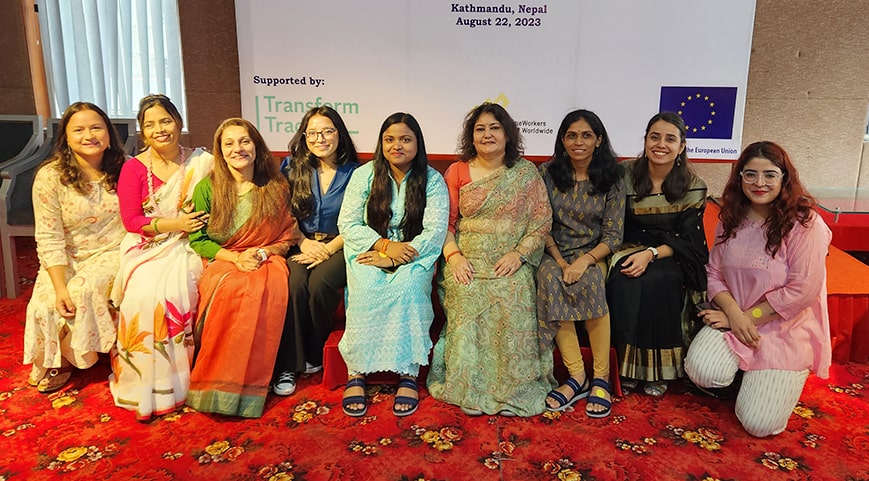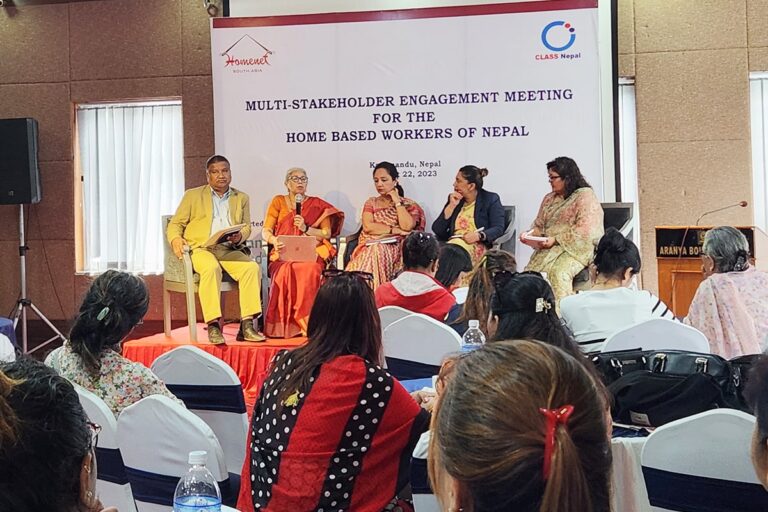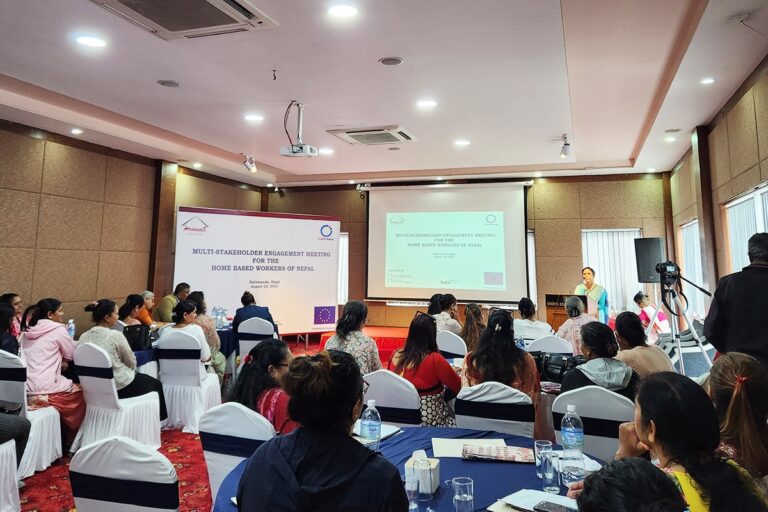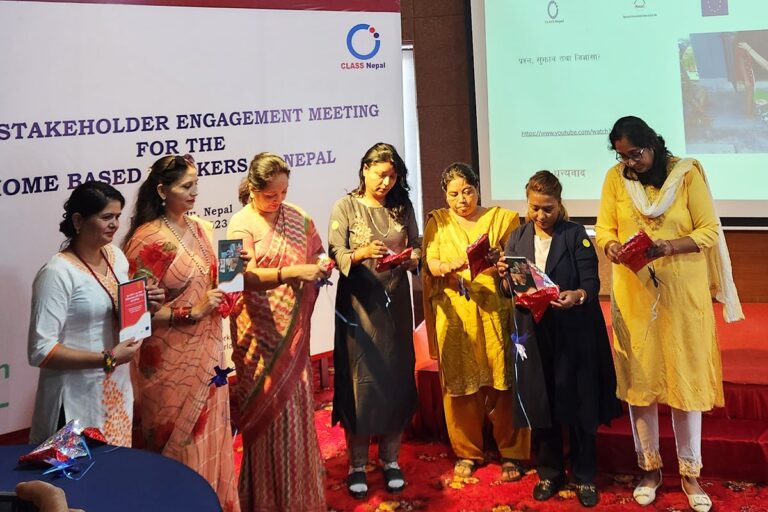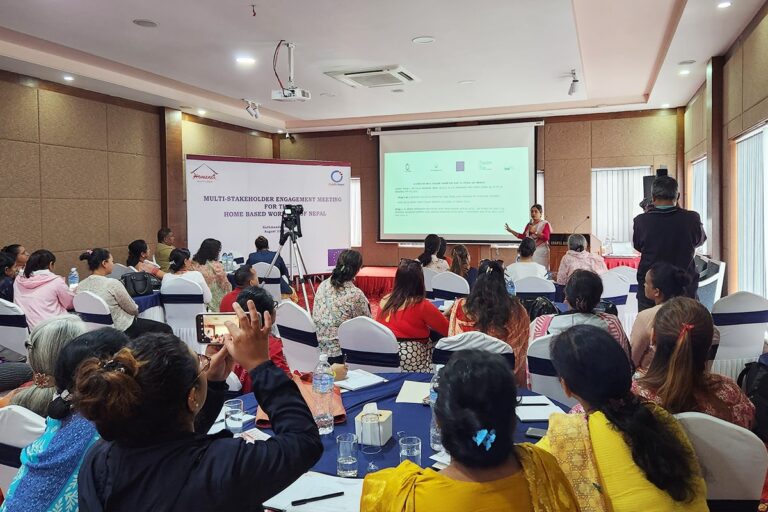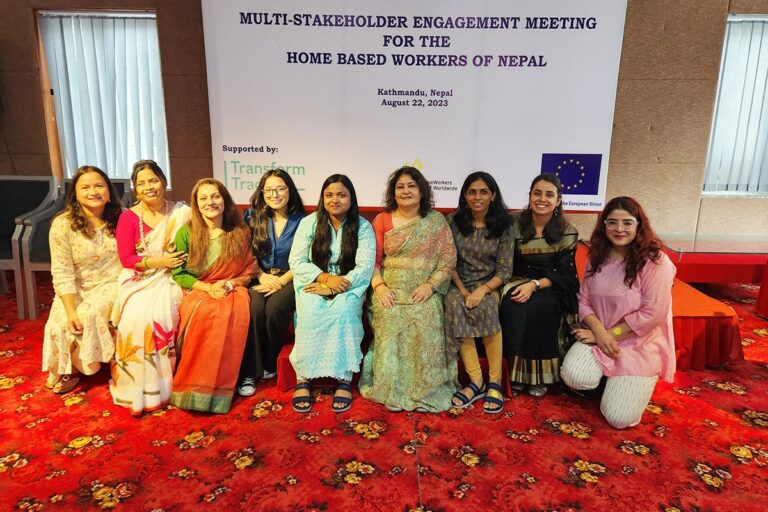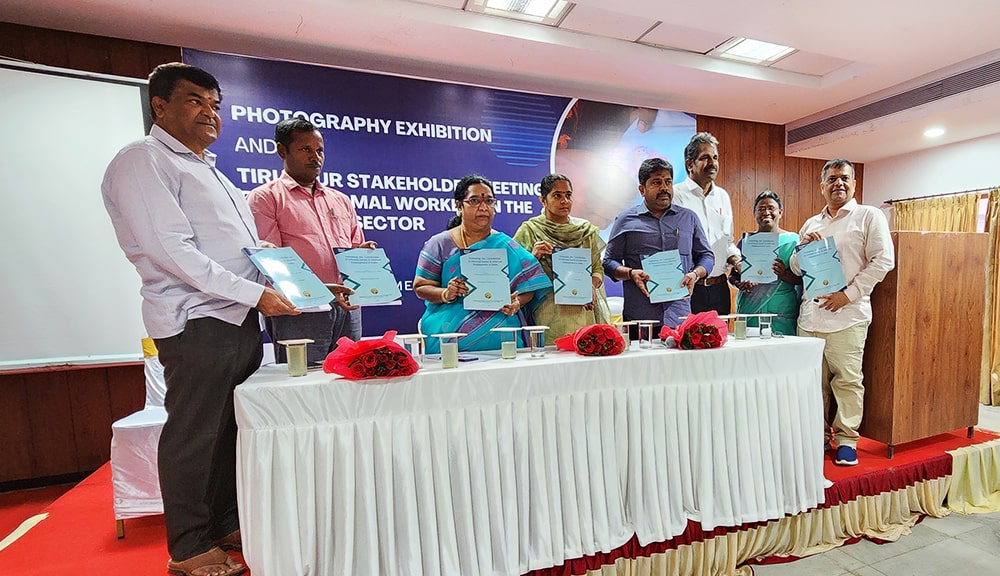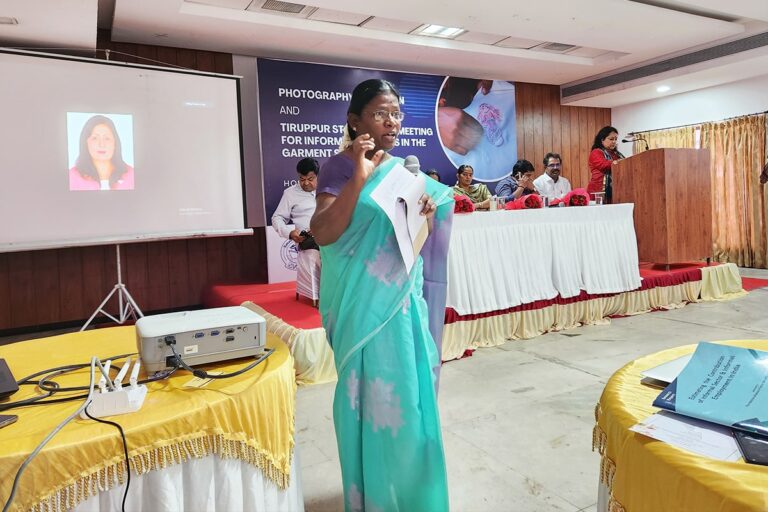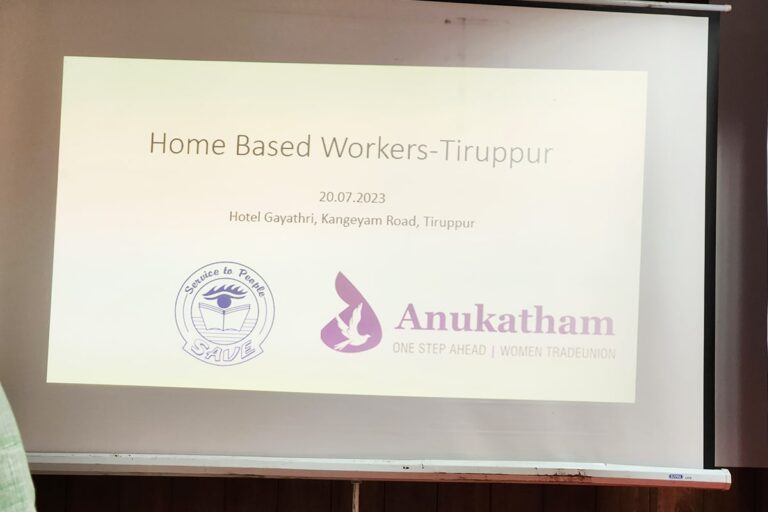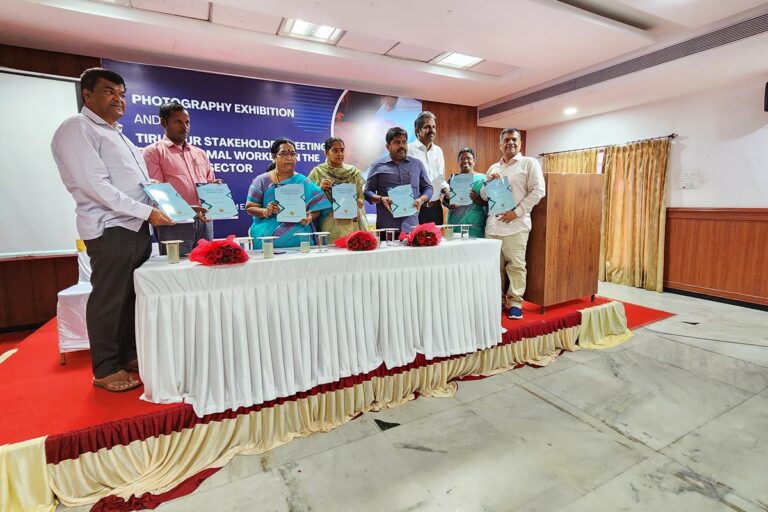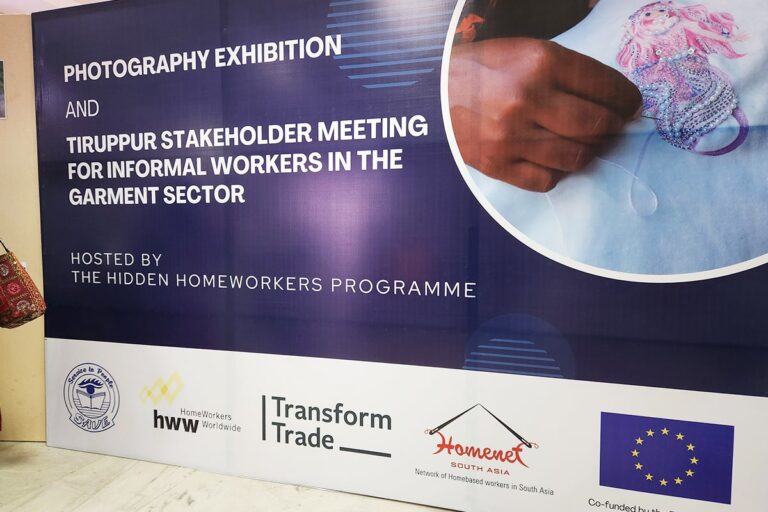Multi-stakeholder engagement meeting on future of home-Based work in Nepal
On August 22, HNSA along with its partner CLASS Nepal, organised a multi-stakeholder engagement meeting in Nepal to discuss the future of home-based work in the country. The event generated valuable insights and discussions on the obstacles confronting home-based workers in Nepal and explored various strategies and initiatives to enhance their conditions and recognition.
The event kicked off with introductions, featuring an impact video presentation. Ms. Sristi Joshi Malla, the Regional Coordinator of HomeNet South Asia, welcomed attendees and provided an overview of the current situation faced by home-based workers in Nepal.
It included a panel discussion on the future of home-based work in Nepal. It featured Ms. Sristi Joshi Malla and four panellists, who delved into the challenges faced by home-based workers in Nepal. Topics included policy development hurdles, the limited endorsement of ILO C177, the quest for equal wages, and workplace safety. The division between formal and informal sectors and data gaps were also addressed, with insights from Pakistan and Thailand providing valuable inspiration.
One of the focal points of the discussion was the coordination of home-based workers with the government and fostering collaboration with trade unions. The lack of recognition for home-based workers was a key concern, and strategies were brainstormed to bridge the gap between trade unions and these workers.
A significant highlight of the event was the launch of a handbook in Nepali for organisers of home-based workers. This handbook was developed by CLASS Nepal with support from HNSA. Ms. Goma Pandey of CLASS Nepal presented the synopsis of the handbook, which aims to empower home-based workers by providing information and support. It addressed issues such as workplace violence, lack of identification, and workplace security.
Another highlight from the event was a speech by Ms. Kamala Pant, representing the newly revived Trade Union for HBWs, and in which she emphasised the importance of home-based workers accepting their identity and advocating for their rights. She underscored the lack of respect for informal sector labour in Nepal and the urgent need for recognition.
HNSA further presented the insights from the Wage Card study findings, which is part of the Hidden Homeworkers Initiative supported by the EU. It shed light on the income, working conditions, and perceptions of home-based workers in Nepal, Pakistan, and India. The Wage Card emerged as a valuable tool to enhance worker understanding and ensure fair compensation for home-based workers.
In summary, the event provided a comprehensive and active overview of the challenges and strategies pertaining to home-based workers in Nepal. It showcased ongoing efforts to elevate their status, gain recognition, and improve their working conditions.
Multi-stakeholder engagement meeting on home-based workers in garment supply chains in Tiruppur, India
As part of the Hidden Homeworkers Initiative, a multi-stakeholder meeting for unorganised knitwear workers was held by SAVE with support from Transform Trade at Tiruppur, India, to address the challenges and issues faced by home-based workers in the garment industry.
The meeting aimed to raise awareness about the work of these home-based workers and advocate for their rights and recognition. Key stakeholders, including government officials, representatives from women’s commissions, and leaders from various organisations, gathered to discuss and support the demands put forward by the workers.
The meeting featured discussions on the recognition of home-based workers as legitimate labourers, ensuring maternity benefits and pensions, linking them to the Employee State Insurance (ESI) scheme, and providing compensation for injuries or deaths. Additionally, the participants emphasized the need for the inclusion of Home Workers Schedule under the Unorganized Labour Welfare Board and the establishment of local committees for addressing sexual harassment issues.
Overall, the event aimed to mobilise support and create a platform for home-based workers to voice their demands and seek better working conditions and recognition for their vital contributions to the knitwear industry.
At the end of the day-long meeting, the demands of the workers were put forward:
- We home-based workers are workers, recognize and register us
- Pay us maternity benefits of Rs 60,000 (6 months minimum wage)
- Pay us a pension of Rs 5,000 per month (50% of minimum wage)
- Link us to the ESI scheme with all benefits
- Pay minimum compensation of Rs 5,00,000 (deformity and death)
- Home Workers Schedule has to be incorporated in the Unorganised Labour Welfare Board
- Local Committee (LC) for sexual harassment has to be constituted as per law by assigning the officials for every taluk, tehsil, ward and municipality


